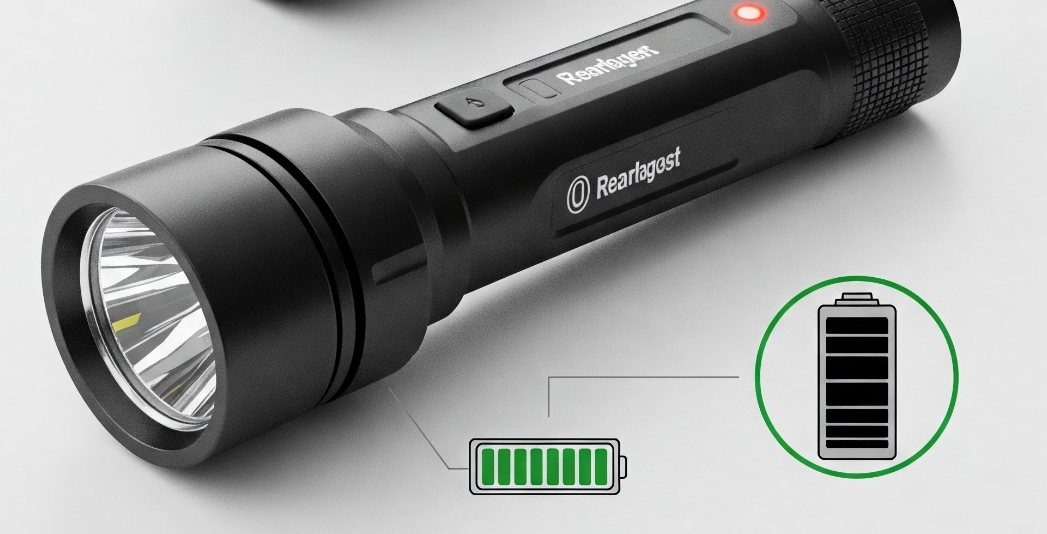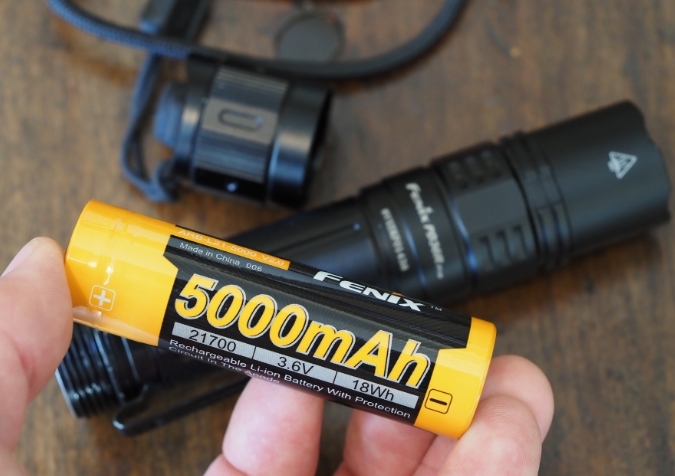Rechargeable Flashlight vs. Disposable Battery Flashlight: Which is Better?
Posted by Raymond on 11th Feb 2025
Flashlights are essential tools in daily life and for emergency situations. When choosing a flashlight, one of the biggest decisions you'll face is whether to go with a rechargeable flashlight or one that uses disposable batteries. Both types have their benefits, but understanding the differences can help you make an informed decision based on your needs.
In this article, we’ll explore the key differences between rechargeable flashlights and disposable battery flashlights, their pros and cons, and provide a detailed comparison to help you choose the best option for your needs.
Rechargeable Flashlights: An Overview

Rechargeable flashlights are equipped with built-in rechargeable batteries, which can be recharged via USB or a dedicated charger. These flashlights are designed to last longer and are more eco-friendly compared to their disposable battery counterparts.
Pros of Rechargeable Flashlights:
- Cost-Effective Over Time: No need to continuously purchase disposable batteries. Rechargeable batteries can be used multiple times.
- Environmentally Friendly: Reduces the waste generated by disposable batteries.
- Convenience: Easy to recharge, and many models come with USB charging options, making it easy to charge from various devices.
- Long Battery Life: Rechargeable batteries generally last longer than disposable ones.
- High Performance: Rechargeable flashlights often have more powerful LEDs and can offer higher brightness levels.
Cons of Rechargeable Flashlights:
- Initial Cost: Rechargeable flashlights may have a higher upfront cost compared to disposable battery models.
- Charging Time: Some rechargeable models may take several hours to fully recharge.
- Battery Life: While rechargeable batteries last a long time, they can lose efficiency over many charge cycles.
Disposable Battery Flashlights: An Overview
Disposable battery flashlights use standard single-use batteries (such as AA, AAA, or 9V batteries). These flashlights are widely available and are commonly used in various settings, from household applications to outdoor use.
Pros of Disposable Battery Flashlights:
- Convenient Availability: Disposable batteries are easy to find in stores and don’t require any special charging equipment.
- No Charging Needed: You can use the flashlight immediately after inserting fresh batteries, making it ideal for emergency situations.
- Lower Initial Cost: Typically, disposable battery flashlights are less expensive to purchase initially.
Cons of Disposable Battery Flashlights:
- Higher Long-Term Costs: Constantly replacing disposable batteries can become expensive over time.
- Environmental Impact: Used disposable batteries contribute to environmental waste, especially if not disposed of properly.
- Limited Battery Life: Disposable batteries generally offer shorter runtimes compared to rechargeable batteries, which means you'll need to replace them more often.
Key Factors to Consider: Rechargeable vs. Disposable Flashlights

Let’s take a closer look at the key factors that differentiate rechargeable flashlights from disposable battery flashlights:
| Factor | Rechargeable Flashlight | Disposable Battery Flashlight |
|---|---|---|
| Initial Cost | Higher initial cost | Lower initial cost |
| Ongoing Cost | No need for new batteries | Requires new batteries regularly |
| Battery Life | Long battery life (up to 1000+ charge cycles) | Limited battery life; need to replace batteries |
| Charging Time | Takes hours to recharge | Instant use after inserting new batteries |
| Eco-Friendliness | Environmentally friendly (fewer batteries used) | Higher environmental impact (more waste from disposable batteries) |
| Brightness | Often higher brightness (more powerful LEDs) | Lower brightness in some models, depends on battery |
| Convenience | Convenient if you have a charging system | Convenient for short-term use but requires battery replacement |
Which One Should You Choose?
Best for Long-Term Use & Eco-Friendliness: Rechargeable Flashlights
If you plan to use your flashlight frequently and are concerned about long-term costs and environmental impact, a rechargeable flashlight is the better option. Over time, the savings on batteries will outweigh the initial cost, and you won’t be contributing to the environmental waste of disposable batteries.
- Recommended for: Outdoor activities, camping, emergency kits, home use, and frequent use.
Best for Occasional or Emergency Use: Disposable Battery Flashlights
If you need a flashlight for emergency situations or infrequent use, a disposable battery flashlight might be more suitable. It's quick to use, requires no charging, and is easier to store without worrying about charging cycles.
- Recommended for: Occasional use, emergency kits, or backup flashlights.
Recommended Rechargeable Flashlight: Tank007 PT41
If you're leaning toward a rechargeable flashlight, we recommend the Tank007 PT41, which offers excellent performance with a powerful 1000 lumens output, long battery life, and multiple light modes. It's perfect for various applications, including outdoor activities, security, and home use.
- Key Features:
- 1000 lumens brightness
- 20 hours of runtime
- USB rechargeable (quick charge in 3-4 hours)
- Waterproof rating of IPX6
- Compact and durable design
You can find more details about the Tank007 PT41 here.
Conclusion
Choosing between a rechargeable flashlight and a disposable battery flashlight depends largely on your specific needs. If you’re looking for long-term savings, eco-friendliness, and higher performance, a rechargeable flashlight is the better choice. On the other hand, if you need something convenient and don’t mind replacing batteries occasionally, a disposable battery flashlight can be a great option.
Make your decision based on how often you plan to use the flashlight, the environmental impact, and whether you prefer the convenience of not having to worry about charging.

